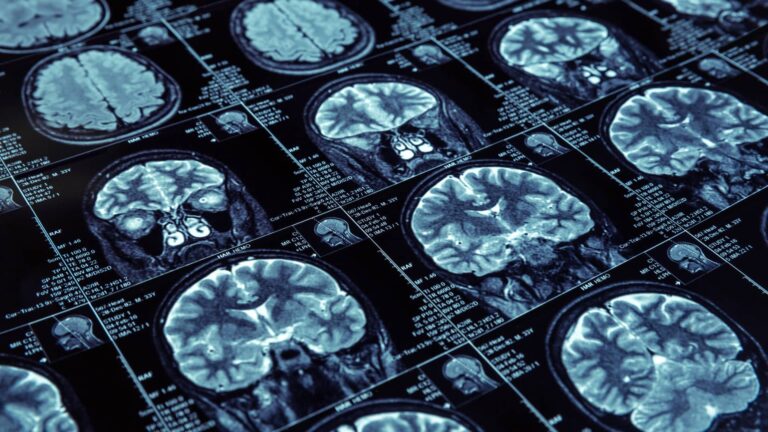Nomadsoul1 | Istock | Getty Images
The question “What is a thought?” is no longer a philosophical one. Like anything else that can be measured, our thoughts are increasingly subject to technological answers, with data captured by tracking our brainwaves. This breakthrough also means that data is commodifiable, and captured brain data is already being bought and sold by companies in the wearable consumer technology sector, with few measures to protect users.
In response, Colorado recently passed the nation’s first privacy law aimed at protecting these rights. The law falls under Colorado’s existing Consumer Protection Act, which aims to “protect the privacy of individuals’ personal data” by imposing certain requirements on organizations that process personal data. [and] It includes additional protection for sensitive data.”
of Key Words in Colorado Law It expands the term “sensitive data” to include “biological data,” which includes a number of biological, genetic, biochemical, physiological and neurological characteristics.
Elon Musk’s Neuralink is the most famous example of technology being wired into the human mind, but it is not alone in this field, with Paradromics emerging as a close competitor and many other devices in development. Reply to stroke patients Helped an amputee move his prosthetic limb With heartAll of these products are medical devices that require implantation and are protected by the strict privacy requirements of HIPAA. Colorado’s law focuses on the rapidly growing consumer technology sector and the devices that do not require a medical procedure, do not have similar protections, and can be purchased and used without any type of medical oversight.
Dozens of companies are making wearable tech products that capture brainwaves (also known as neural data). Amazon alone features pages and pages of products ranging from sleep masks designed to optimize deep sleep or encourage lucid dreaming, to headbands that claim to improve focus, to biofeedback headsets that will take your meditation sessions to the next level. By design and necessity, these products capture neural data using tiny electrodes that generate readings of brain activity, and some even deliver electrical impulses to brain activity.
There are virtually no laws in place to deal with all the data in the brain.
“We’ve entered the realm of science fiction,” said Rep. Cathy Kipp, D-Colorado, the bill’s lead sponsor. “Every scientific advance needs guardrails.”
“ChatGPT-moment” consumer brain technology
a Recent Research A study by the NeuroRights Foundation found that of 30 companies making wearable technology that can capture brainwaves, 29 “do not place meaningful restrictions on this access.”
“This revolution in consumer neurotechnology has been focused on improving our ability to capture and interpret brainwaves,” said Dr. Sean Pawzawski, medical director of the NeuroRights Foundation. Devices that use electroencephalography, a technology readily available to consumers, “is a multi-billion dollar market that will double over the next five years or so,” he said. “It’s not impossible that neurotechnology could have a ChatGPT moment in the next two to five years.”
The amount of data that can be collected depends on several factors, but the technology is advancing rapidly, and as AI-infused technology becomes more widespread, the number of applications is likely to increase exponentially. Apple is already Patent filed for brain-sensing AirPods.
“Brain data is too important to be left unregulated. Brain data reflects the inner workings of our minds,” said Rafael Yusuf, professor of biological sciences at Columbia University, director of the Neurotechnology Center, president of the NeuroRights Foundation and leader of the Neutron Tech Ethics Organization. Morningside Group“The brain is more than just an organ of the body,” he added. “It is the sanctuary of our mind, and we need to encourage private actors to adopt responsible innovation frameworks.”
Pausawski said the value to companies lies in interpreting and deciphering the brain signals collected by wearable technology. As a hypothetical example, he said, “If you were wearing brain-sensing earbuds, Nike would not only know from your browsing history that you looked at running shoes, but they would also be able to tell how interested you were in them while you were browsing.”
A wave of biological privacy laws may be needed
The concerns addressed by Colorado’s law could spark a wave of similar legislation, with a focus on the convergence of rapidly evolving technologies and the commodification of user data. Historically, consumer rights and protections have lagged behind innovation.
“Perhaps the most recent parallel example regarding technology and privacy is the largely unchecked internet and consumer genetic revolution,” Pausawski said.
The same thing could happen if the collection and commercialization of consumer brain data continues unchecked. Hacking, corporate profiteering, ever-changing privacy agreements for users, and little to no law regarding data are all big risks, Pauszowski said. Under Colorado privacy law, brain data would be given the same privacy rights as fingerprints.
Farinaz Khushanfar and Duygu Kuzum, professors in the UC San Diego Department of Electrical and Computer Engineering, say it’s too early to understand the limitations of the technology or the depth of potentially intrusive data collection.
Tracking neural data could mean tracking a wide range of cognitive processes and functions, including thought, intent, and memory, they said in a joint emailed statement. In extreme cases, tracking neural data could mean directly accessing medical information.
The broad range of possibilities is problematic in itself: “There are worryingly many unknowns in this field,” the researchers wrote.
According to Kouchanfer and Kusum, the widespread adoption of such laws may force companies to overhaul their current organizational structures, appointing new compliance officers and introducing risk assessments, third-party audits, anonymization and other techniques as mechanisms for establishing requirements for the organizations involved.
On the consumer side, Colorado’s law and subsequent efforts represent an important step to better educate users and provide them with the tools they need to identify and exercise their rights when they are violated.
“Privacy Law [in Colorado] “This neurotechnology law could be a rare exception where rights and regulations are put in place ahead of widespread misuse and abuse of consumer data,” Pausawski said.



